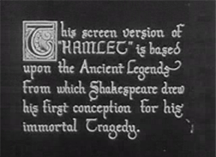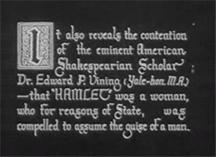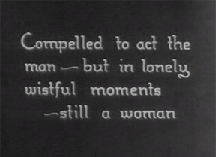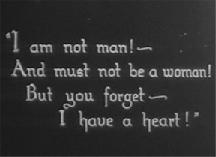

For Vining, Hamlet was not only a "'womanly man" but "in very deed a woman, desperately striving to fill a place for which she was by nature unfitted. . ." (Vining 59):

". . .if we imagine that the poet here portrayed a woman incapable of accomplishing the revenge which the perturbed spirit of her father had imposed upon her, driven to the borders of distraction by unbearable burdens, suffering from a hopeless love that she might never reveal, tortured by jealousy, sorely sensitive to all a woman's natural faults, and incensed far more at the sacrifice of personal purity made by her mother in marrying again so speedily, than even by the murder of her father; shrinking from the mortal struggle with the king, fearing bloodshed, and viewing the possibility of her own death with a shuddering horror, and hence anxious to find some escape, some easier method of fulfilling her duty; that which before seemed at variance with all ordinary modes of thinking now becomes an exhibition of the deepest human feeling." (Vining 75)

